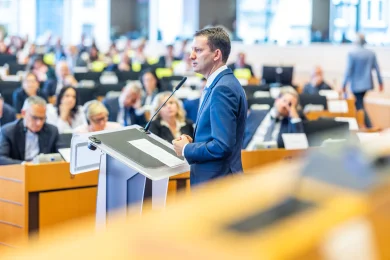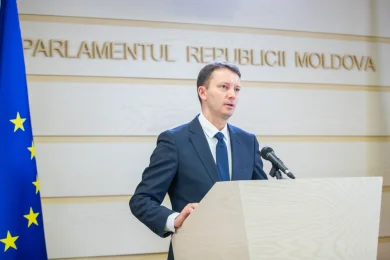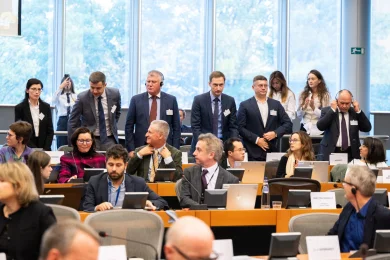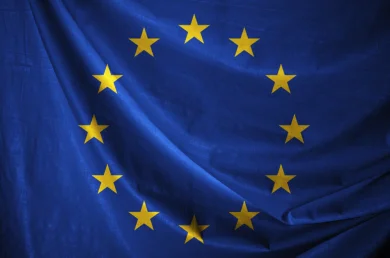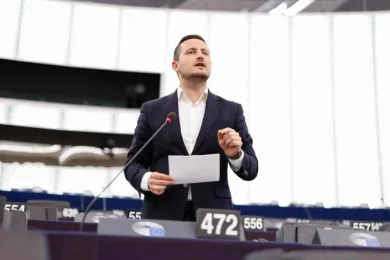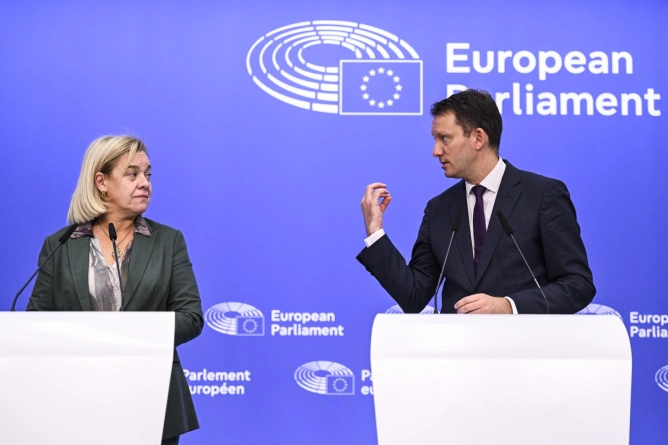
Brussels, November 13, 2025 - The European Parliament warns that it will not approve the future budget of the European Union for the period 2028–2034 if the Common Agricultural Policy (CAP) and Cohesion Policy are not maintained at a consistent level. The message was conveyed by MEP Siegfried Mureșan, the Parliament's chief negotiator for the Multiannual Financial Framework (MFF), during a press conference in Brussels.
Mureșan emphasized that the Parliament supports the reorientation of the budget towards security, defense, and competitiveness, but believes that these priorities cannot be funded by reducing support for farmers and regions. According to him, a balanced budget requires strengthening new areas without weakening the policies that have ensured economic convergence in the Union.
The Parliament has already obtained a modification of the Commission's proposal, which stipulates that at least 10% of the unallocated funds, equivalent to over 45 billion euros, should be directed towards rural development. Mureșan pointed out that this provision saves the second pillar of the CAP, intended for investments in villages and agricultural areas.
Another dispute concerns how the Commission calculated the agricultural budget. The Parliament argues that the proposed amounts do not take into account accumulated inflation. Mureșan explained that the nominal value of 290 billion euros for the first pillar of the CAP is the same as in the current budget, but expressed in prices from the years 2028–2034, which means a real decrease in funding. The Parliament demands that current amounts be maintained in real terms and that a separate adjustment for inflation be applied.
Regarding cohesion funds, Mureșan indicated that the Parliament considers these programs essential for all regions of the Union and rejects the idea of reducing them. The negotiator specified that the new budget framework will include a mandatory role for regional authorities in developing national development plans, to avoid centralizing decisions at the government level.
Referring to the negotiation process, Mureșan stated that the Parliament will remain involved at all stages, from drafting legislative texts to final approval. He explained that the changes obtained by the legislature are not political statements, but legal texts that will form the basis for negotiations with the Council.
The negotiator specified that the four pro-European groups in the Parliament, the European People's Party, the Socialists and Democrats, Renew Europe, and the Greens, will continue to work together on the budget file. He rejected interpretations suggesting that there are tensions between the European People's Party in Parliament and the Commission led by Ursula von der Leyen, stating that the Parliament defends the role of the institution, not the interests of a party.
Addressing the difficulties faced by European farmers, high costs, the pressure of the Green Deal, and competition from products from Ukraine, Mureșan reiterated that support for agriculture must be maintained and adapted. "It is impossible to ask more from farmers with fewer resources," said co-rapporteur Karla Tavares, who was present at the conference.
Mureșan also recalled the experience of the Recovery and Resilience Facility (RRF), where the Parliament was marginalized in the decision-making process. This time, the legislature wants to be involved from the beginning to the end of the process to ensure transparency and accountability of the European budget.
In a message to the member states, Mureșan called for the budget to be built in an inclusive manner, with the participation of final beneficiaries, farmers, small businesses, universities, and civil organizations, and to reflect the European character of the common funds.
